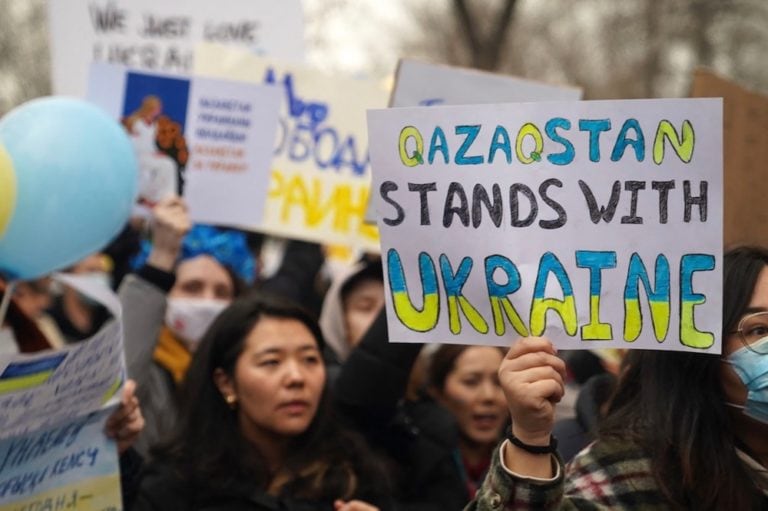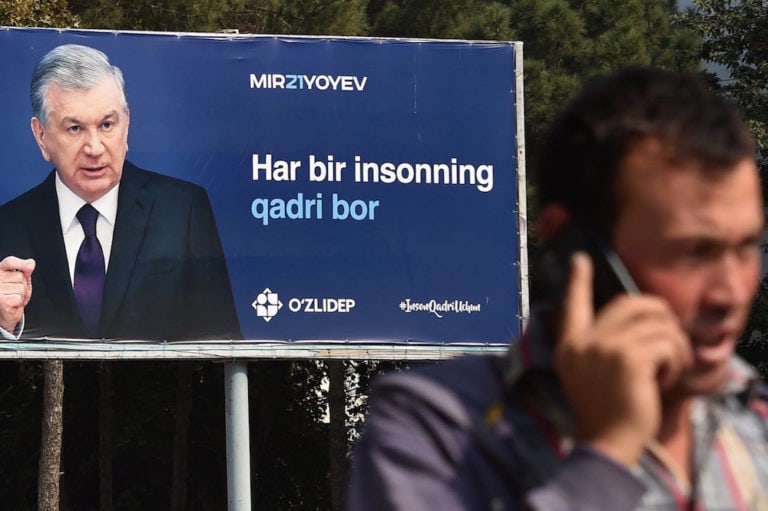(HRW/IFEX) – The following is a Human Rights Watch press release: Uzbekistan: Rights Defender Detained on Homosexuality Charges (New York, May 29, 2003)–Uzbek authorities have detained rights defender Ruslan Sharipov and two colleagues for what appear to be politically motivated reasons, Human Rights Watch said today. Human Rights Watch called on the Uzbek government to […]
(HRW/IFEX) – The following is a Human Rights Watch press release:
Uzbekistan: Rights Defender Detained on Homosexuality Charges
(New York, May 29, 2003)–Uzbek authorities have detained rights defender Ruslan Sharipov and two colleagues for what appear to be politically motivated reasons, Human Rights Watch said today. Human Rights Watch called on the Uzbek government to immediately release the three rights activists pending further investigation.
On May 26, police arrested Ruslan Sharipov, an independent human rights activist and journalist known for his critical articles on police corruption and human rights abuses. Police also arrested Sharipov’s colleagues Oleg Sarapulov and Azamat Mamankulov. On Wednesday, police from the Anti-Terrorism Department told Human Rights Watch that Sharipov is being charged with having committed homosexual acts (article 120 of the criminal code). The police said they are also looking into allegations Sharipov had sex with two male minors for money. No charges have been filed against Sarapulov or Mamankulov.
“Sharipov’s longstanding history of criticizing government policy, combined with past harassment against him and his colleagues, raise strong suspicions that this is a politically motivated case,” said Elizabeth Andersen, executive director of Human Rights Watch’s Europe and Central Asia division. “That the authorities would charge him with committing homosexual acts, violating his fundamental rights to non-discrimination and privacy, makes it doubly egregious.”
For more than twenty-four hours following Sharipov’s arrest, police from the Mirzo-Ulugbekski Police Department denied to Human Rights Watch and others from the international community that Sharipov and his colleagues were in their custody. Only in the late morning on May 27 did the police admit that the three were in custody. That evening, police denied access to a lawyer who requested to see Sharipov. The next day, police allowed Sharipov a meeting with a lawyer and Human Rights Watch, but only in the presence of police officers. Sharipov told Human Rights Watch that police hit him several times, threatened to rape him with a bottle, and put a gas mask on him. He said they also displayed copies of his articles on a table in front of him and shouted at him for long periods.
Sharipov said that he has never hidden his sexual orientation. He told Human Rights Watch that he believes the case is being fabricated against him in retribution for articles he wrote exposing police corruption.
“Police have already violated Sharipov’s rights,” said Andersen. “We will be following this case very closely.”
Human Rights Watch has documented prior harassment of Ruslan Sharipov, Oleg Sarapulov and Azamat Mamankulov. On October 21, 2002, National Security Service officers forcefully escorted Mamankulov out of an Internet café, hit him several times in the stomach and head, and warned him to stop working with Sharipov. On February 22, police detained Sarapulov and questioned him about Internet articles in his possession that were critical of the Uzbek government. He was released after two days. He told Human Rights Watch that the police planted on him leaflets belonging to Hizb ut-Tahrir, an Islamic group banned in Uzbekistan.
In March 2002, Human Rights Watch wrote to President Karimov, expressing alarm at three attacks on Sharipov in January and February 2002, including being dragged into a car by police officers and questioned about his journalistic activities, and being beaten twice by unidentified attackers who took his mobile telephone, journalist accreditation card, passport and money.
Since 1994, the United Nations Human Rights Committee, which monitors compliance with the International Covenant on Civil and Political Rights (ICCPR), has called on countries that are party to the convention to repeal sodomy laws, or laws that punish adult, consensual homosexual acts. The Committee held that such laws violate protections against discrimination in the ICCPR, as well as article 17, which protects the right to privacy. Specifically, the Committee held that “sexual orientation” was a status protected under the ICCPR from discrimination. Uzbekistan ratified the ICCPR in 1996.


